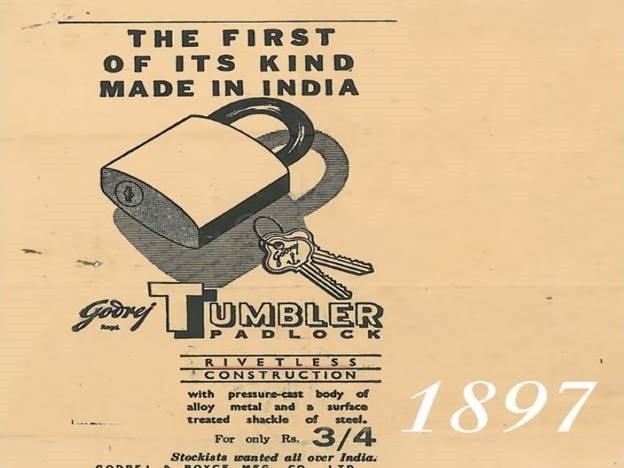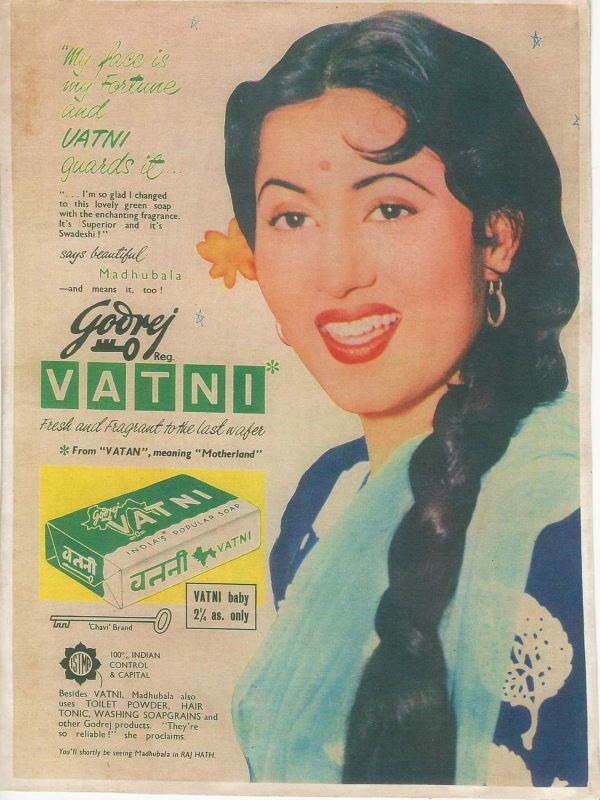In 2022, India boasts of over 72,000 recognized startups with the world’s third-largest start-up ecosystem to support their growth. Over a century ago, India was used as a market for English goods and native production was discouraged. Interestingly, some of India’s industrial giants trace their beginnings to that era.
Anuradha Dutta | Indiablooms
The Godrej conglomerate that has a presence across sectors like home appliances, high-end premium furniture, consumer goods, agriculture, and aerospace also started in those days and is still evolving.
After a voluminous two-part history written in the centenary year in 1997, the Godrej family once again told the story of the beginning and evolution of one of India’s largest business empires through a completely different medium.
To celebrate 125th foundation day on May 7, 2022, Godrej & Boyce, the flagship company of Godrej Group, unveiled a comic book on its founders Ardeshir and Pirojsha.
Authored by Malini Sharma and published by Amar Chitra Katha (ACK), the book titled “Ardeshir and Pirojsha Godrej: Pioneers of Progress” with its classic, simple narrative style and legendary artist Dilip Kadam’s illustrations of dramatic episodes from the lives of Ardeshir and Pirojsha aims to specifically appeal and inspire children of all ages.
ACK is India’s top comics and graphic novel publisher, which has through generations inspired millions of children to get familiar with Indian mythology and history, great personalities, and heritage of the country through crispy, well-illustrated comics.
The story of Ardeshir and Pirojsha Godrej wasn’t the first time they told the story of the industrial luminaries. They have done it before having published comic books on the life of other legendary figures of Indian industry like Jamsetji Tata, JRD Tata and Ghanshyam Das Birla.
A storytelling session was organised by Kolkata’s leading bookstore chain Starmark with ACK and the Godrej Group last week to celebrate the recent publication of the book.
The book relates how a young Parsi gentleman Ardeshir Godrej, inspired by the ideals of nationalism and ‘swadeshi’, decided to offer cheap but quality products created in India as an alternative to British imports. He started with surgical instruments but gave up the venture after he was asked to put the ‘Made in England’ mark to qualify for sale.
However, he soon realized that there was a hidden demand for safe and sturdy locks after reading a news item in the Bombay Gazette about a gang of burglars breaking locks in the city. It led Ardershir to innovate “Made in India” unpickable locks adding the name “Boyce” to Godrej.
The book beautifully narrates the trials and tribulations Ardeshir faced in turning his novel ideas into products that people actually needed. With the financial assistance of Rs 80,000 from Merwanji Cama, Ardeshir rented out a shed in Mumbai’s Lalbaug, employed a dozen workers from Gujarat and Malabar, bought a small steam engine, and started producing locks in 1897. Soon, his younger brother Pirojsha joined him and got a patent for making springless locks.
This is how the Godrej locks, trusted by most Indian households and businesses even today, came into existence.
In 1904, Ardeshir’s fireproof-safe successfully stood the fire test. Its unique design was covered by three patents and Godrej Locks and Safes won gold medals at the agricultures and industrial exhibition in Madras.
The next big step was producing soaps that agreed with the Indian sensibilities as soaps in those times had tallow, formed out of animal fat, as an ingredient. After much trial and error, finally, in 1918, Ardeshir launched the Chavi brand of vegetable soaps, which became a runaway hit, beating existing imported giants like Lux, White Rose Cuticura and Windsor.
By the early 1930s, Godrej soaps had launched Turkish Bath and Vatni, a herbal neem soap, and also a shaving soap for men.
After Ardeshir’s demise in 1936, Pirojsha led the Godrej business, and built Vikhroli, the industrial township on the outskirts of Mumbai city.
As Godrej & Boyce completed 125 years, Chairman and MD Jamshyd N Godrej said the company’s progress has been inextricably linked with India’s journey of self-reliance.
“We have made a series of firsts in India from locks, safes, refrigerators, almirahs, typewriters to critical components for India’s missions to the Moon and to Mars, and her forays into clean technology,” he added.
Speaking on the sidelines of the storytelling session, Mehnosh Pithawala, head of Brand & Strategy for Godrej & Boyce said Ardeshir’s strong belief in “swadeshi” and “self-reliance” which is known as “Atmanirbhar Bharat” in the current Indian scenario, was instrumental in establishing the empire.
“In a way, he was the pioneer of startups as you would read in the book…he developed innovative products and manufactured everything in India. He was a nationalist, a patriot, a swadeshi movement believer…he felt very strongly for the country.”
Asked to comment on the contributions of the Parsi community to India’s development, Pithawala said, “Parsies have been proudly contributing to the country and it’s very important that it continues in the future as well. We feel it’s our duty…we are a very small community, our numbers are diminishing, too, but we are very proud to be Indians.”
Underscoring the role of India’s oldest business houses, Pithawala commented, “Whether it was Tatas, Birlas or Godrej, they had the belief in India that we can also make products in the country and better than the foreigners. This belief also encouraged a lot of Indian businessmen to come up in the future. I think they laid the roots with their response to the swadeshi movement or the Atmanirbhar Bharat called right now from the point of view of being self-sufficient.”
“After decades of British rule, the belief and confidence to innovate, design and make in India had diminished and these were the people who were responsible in restoring that faith back into the future generations of the country,” he noted.
As startup culture and the slogan of “Atmanirbhar Bharat” (Self-reliant India) gains momentum in the country, Godrej Group is associating with several startups as well as the premier institutes of India like the IITs and the IIMs.
“The development of startups is a very positive thing. We encourage them, work with them and not only with them but also with the educational and research institues such as the IITs and the IIMs..we work a lot with the younger generation, for example in the fields like concrete 3-D printing, semiconductors required for the appliances, zinc magnesium batteries, security solutions and many more,” Pithawala added.






